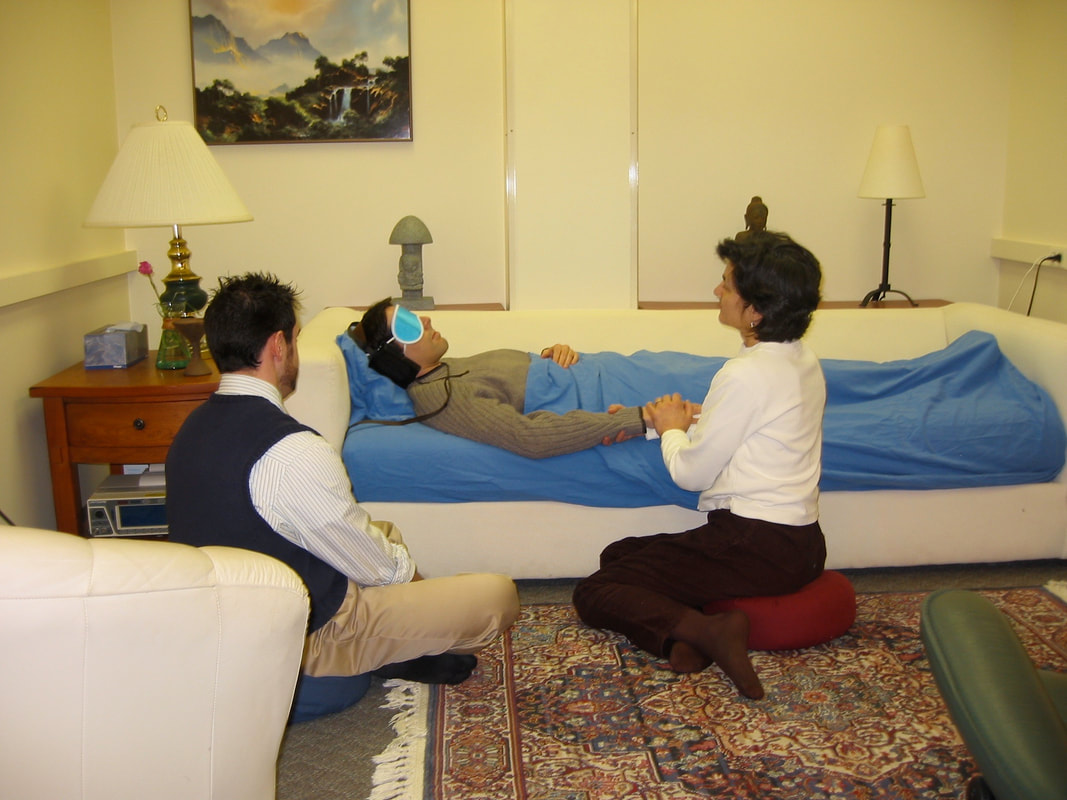|
Empowering Parents to Support Their Loved Ones in Behavioral Health Treatment Introduction
Addiction is a complex and multifaceted issue that affects not only the individual struggling with addiction but also their family and loved ones. When a family member attends behavioral health treatment and begins the process of reintegration into the family system, it can be a challenging and emotional time for everyone involved. One crucial aspect of this process is understanding the role of control in family addiction recovery. The Importance of Control in Family Addiction Recovery Control plays a significant role in the recovery process. It is essential for parents to establish healthy boundaries and a sense of control over their own lives and the family environment. This does not mean exerting control over the loved one in recovery, but rather establishing a sense of stability and structure that can support their recovery journey. Establishing Healthy Boundaries It is crucial for parents to establish healthy boundaries with their loved ones in recovery. This means clearly communicating expectations, setting limits, and maintaining consistency in interactions. It is also important to establish boundaries for oneself, such as taking time for self-care and not becoming overly enmeshed in the loved one's recovery process. Creating a Supportive Environment Creating a supportive environment is another essential aspect of establishing control in the family addiction recovery process. This includes creating a home environment that is free of substances and triggers, as well as providing emotional support and encouragement. It is also important to establish a routine and structure that can help the loved one in recovery to regain a sense of normalcy and stability. Empowering the Loved One in Recovery Empowering the loved one in recovery is also a crucial aspect of establishing control in the family addiction recovery process. This means supporting their autonomy and decision-making, while also holding them accountable for their actions. It is important to encourage open communication and provide a safe space for the loved one to express their feelings and concerns. Practical Tips for Parents
Conclusion Control plays a huge part in family addiction recovery. It is essential for parents to establish healthy boundaries, create a supportive environment, and empower their loved one in recovery. By taking control of their own lives and the family environment, parents can provide a strong foundation for their loved one's recovery journey. Call to Action If you are a parent of a loved one who has recently attended behavioral health treatment and is reintegrating into the family system, it is important to seek support and guidance. Reach out here to learn more about my services and how I can support you and your loved one on the journey to recovery. Together, we can reclaim control and create a brighter future for your family.
0 Comments
Breaking Cycles, Restoring HopeIntroduction
There comes a point in every family's struggle with addiction when we start to lose hope. We've tried everything - from interventions to rehab stays, tough love to enabling - yet our loved one continues to spiral. The pain and chaos seem never-ending. But what if there was another way? An emerging therapy that could break the vicious cycle of addiction for good? In this blog post, we'll explore the incredible healing potential of psychedelic-assisted therapy. Once stigmatized as dangerous "party drugs," psychedelics like psilocybin (the active compound in "magic mushrooms") are proving to be powerful medicines when used appropriately. Let's dig into the science and hear from those whose lives have been transformed. There is hope. The Resurgence of Psychedelic Medicine After being banned for decades, psychedelic research is making a comeback at prestigious institutions like NYU, Johns Hopkins, and Imperial College London. Rigorously controlled clinical trials are demonstrating that psychedelic experiences, when expertly guided, can help people overcome depression, anxiety, PTSD, and addiction. How does it work? Psychedelics alter our brain's serotonin receptors, inducing a flexible, "unstuck" mental state. People often experience new perspectives, feel deeply connected, and gain insights into their behaviors. With the right set and setting, this state allows people to rewire their thought patterns in a therapeutic way. Treating Addiction at the Roots Addiction stems from a complex interplay of genetics, trauma, and social factors. Self-medicating with substances often becomes a way to cope. Psychedelic therapy aims to address the roots of addiction - not just the surface-level cravings. Psilocybin has been shown to decrease activity in the brain's Default Mode Network - the area linked to rumination, depression, and craving. It also stimulates the growth of new neural connections. People report feeling more optimism, openness, and connection after psychedelic experiences. These brain changes allow people to approach their addiction from a different perspective. Old pain can be processed and released. Healthier coping mechanisms come naturally. People gain motivation to create lasting change. Psychedelic-Assisted Therapy in Practice So what does a psychedelic therapy session actually look like?
Restoring Lives and Families Psychedelic therapy is still relatively new, but the results we're seeing are remarkable. Here are a few stories of people whose lives have been transformed:
A Beacon of Hope Alex, Susan, and James' stories demonstrate the incredible promise of psychedelic medicine. For families struggling with the devastation of addiction, psychedelic-assisted therapy offers a beacon of hope. This scientifically-proven approach treats addiction at its core, empowering people to live joyful, purpose-driven lives free of substance abuse. And when one person heals, the entire family system benefits. If you feel drawn to explore this emerging therapy, reach out. There are practitioners guiding sessions legally under FDA approval. Others operate in legal gray areas. Seek a skilled, ethical guide. With trust and intention, psychedelics can catalyze transformation. Conclusion You deserve to live fully and freely - not constrained by addiction's grip. Psychedelic-assisted therapy may be the key. Family Addiction Recovery is ready to answer your questions and support you on this journey. Don't lose hope. Healing is possible. Call to Action: To learn more about psychedelic-assisted therapy for addiction recovery, click here to schedule a free consultation. I'm here to help. Empowering Families to Overcome Addiction TogetherIntroduction
Addiction is a battle that affects not only the individual struggling with it but also their family and loved ones. It is a journey filled with ups and downs, and the road to recovery often seems daunting and never-ending. However, one key element that can make a significant difference in this journey is self-belief. Believing in oneself and the power of family support can be the cornerstone of addiction recovery. In this blog post, we will explore the role of self-belief in family addiction recovery and how it can empower and inspire families to overcome addiction together. The Power of Belief Belief is a powerful force that can shape our reality and influence our behavior. When we believe in ourselves, we are more likely to take positive actions and make decisions that lead to success. Conversely, when we doubt ourselves, we are more likely to procrastinate, make poor decisions, and ultimately fail. This is why self-belief is so crucial in the journey of addiction recovery.
Building a Supportive Network Having a supportive network of friends and family is crucial for addiction recovery. Here are some tips for building a supportive network:
The Role of Forgiveness Forgiveness is an important aspect of addiction recovery. It involves letting go of anger, resentment, and guilt that may be holding you back.
Creating a Healthy Lifestyle Creating a healthy lifestyle is essential for maintaining long-term recovery. Here are some tips for creating a healthy lifestyle:
Conclusion Recovery from addiction is a journey that requires self-belief, support, and empowerment. By believing in oneself, building a supportive network, practicing forgiveness, and creating a healthy lifestyle, individuals and families can overcome addiction together and build a brighter, healthier future. Remember, recovery is a journey, not a destination, and it is important to be kind and patient with yourself and your loved ones. At Family Addiction Recovery, we are here to support you every step of the way. Reach out to us today and take the first step towards a brighter, healthier future. A Guide to Neurobiology, Trauma, and Family Addiction RecoveryIntroduction
Addiction is a complex issue that affects not only the individual but also their family and loved ones. It is often linked to past trauma, and understanding the neurobiology of trauma can be crucial in the journey towards recovery. This blog post aims to shed light on the connection between trauma, the brain, and addiction, and provide a roadmap for families on the path to recovery. Remember, healing is possible, and it is a journey that you and your loved ones can embark on together. The Neurobiology of Trauma Trauma can have a profound impact on the brain and its functioning. When we experience a traumatic event, our brain's response is to release stress hormones, such as adrenaline and cortisol, which prepare our body to respond to the threat. This is commonly known as the 'fight or flight' response. However, when trauma is repeated or prolonged, it can lead to changes in the brain that affect our ability to cope with stress and can increase the risk of developing addiction. Amygdala: The amygdala is the part of the brain responsible for processing emotions such as fear, anger, and pleasure. Trauma can lead to hyperactivity in the amygdala, which can result in increased feelings of anxiety and fear. Hippocampus: The hippocampus is involved in the formation of new memories and is also responsible for connecting emotions and senses, such as smell and sound, to memories. Trauma can lead to a reduction in the size of the hippocampus, which can affect memory and learning. Prefrontal Cortex: The prefrontal cortex is responsible for executive functions such as planning, decision-making, and impulse control. Trauma can lead to changes in the prefrontal cortex that affect our ability to make decisions and control impulses. The Link Between Trauma and Addiction The changes in the brain caused by trauma can increase the risk of developing addiction. For example, the hyperactivity in the amygdala can lead to increased anxiety and fear, which may lead to self-medication with drugs or alcohol to alleviate these feelings. Similarly, changes in the prefrontal cortex can affect impulse control, making it more difficult to resist the urge to use substances. Additionally, trauma can lead to feelings of isolation, helplessness, and a lack of self-worth, all of which can contribute to the development of addiction. It is important to understand that addiction is not a choice or a moral failing, but rather a response to past trauma and changes in the brain. Family Addiction Recovery Recovery from addiction is not just an individual journey, but one that involves the whole family. Family members often bear the brunt of the addiction, experiencing feelings of guilt, shame, and helplessness. It is important for family members to seek support and education about addiction and its impact on the family. Education: Understanding the neurobiology of trauma and its link to addiction is crucial for the recovery process. It can help to remove the stigma associated with addiction and provide a framework for understanding the behaviors and challenges faced by your loved one. Support: Joining a support group for families affected by addiction can provide a safe space to share your experiences and learn from others who are going through the same thing. Therapy: Family therapy can be an important part of the recovery process. It can help to address the underlying issues that may have contributed to the addiction and help to rebuild trust and communication within the family. Self-Care: It is important for family members to take care of themselves as well. Make time for activities that bring you joy and relaxation, and seek support if needed. Understanding Trauma Trauma is an emotional response to a distressing event or series of events that overwhelms an individual's ability to cope. It can be caused by a single event, such as a car accident or natural disaster, or by ongoing stressors, such as childhood abuse or living in a war zone. Trauma can have long-lasting effects on both the mind and body, and can manifest in various ways, including: Emotional Symptoms: These may include feelings of sadness, anger, anxiety, guilt, and shame. Individuals may also experience mood swings, irritability, and a sense of numbness or detachment from others. Physical Symptoms: These may include headaches, stomachaches, muscle tension, and sleep disturbances. Trauma can also affect the immune system, making individuals more susceptible to illness. Behavioral Symptoms: These may include changes in appetite, substance abuse, self-harm, and social withdrawal. Individuals may also have difficulty concentrating and may experience memory lapses. Cognitive Symptoms: These may include intrusive thoughts, flashbacks, and nightmares. Individuals may also have difficulty making decisions and may experience feelings of confusion and disorientation. It is important to note that everyone experiences trauma differently, and what may be traumatic for one person may not be for another. Additionally, the effects of trauma may not be immediately apparent and may manifest weeks, months, or even years after the event. The Impact of Trauma on the Family Trauma does not only affect the individual who experienced it, but also their family and loved ones. Family members may experience secondary trauma, which is the stress resulting from wanting to help a loved one who has been traumatized. This can lead to feelings of helplessness, frustration, and guilt. Additionally, the behaviors and symptoms exhibited by the traumatized individual, such as withdrawal, irritability, and mood swings, can strain family relationships and create a tense and stressful environment. It is important for family members to seek support and take care of their own mental health as well. This may involve joining a support group, seeking therapy, or engaging in self-care activities such as exercise, meditation, and spending time with loved ones. The Connection Between Trauma and Addiction Trauma and addiction are often interconnected. Many individuals who have experienced trauma turn to substances as a way to cope with the pain and distress they are feeling. This is known as self-medication. For example, alcohol and drugs can provide temporary relief from feelings of anxiety, sadness, and anger. However, over time, this can lead to dependence and addiction. Additionally, the changes in the brain caused by trauma can increase the risk of developing addiction. For example, trauma can lead to changes in the reward pathway of the brain, making it more susceptible to the effects of drugs and alcohol. This can lead to increased cravings and a greater likelihood of developing an addiction. It is important to address both the trauma and the addiction in the recovery process. This may involve trauma-focused therapy, such as Eye Movement Desensitization and Reprocessing (EMDR) or Trauma-Focused Cognitive Behavioral Therapy (TF-CBT), as well as addiction treatment such as detoxification, medication-assisted treatment, and support groups. The Role of the Family in Addiction Recovery The support of loved ones is crucial in the addiction recovery process. Family members can provide emotional support, encouragement, and accountability. However, it is important for family members to educate themselves about addiction and its impact on the brain and behavior. This can help to remove the stigma associated with addiction and foster a more supportive and understanding environment. Additionally, it is important for family members to set boundaries and take care of their own mental health as well. This may involve seeking support from a therapist or a support group, and engaging in self-care activities. Conclusion Recovery from addiction and trauma is a journey that involves the whole family. With education, support, and self-care, it is possible to heal and create a brighter future for yourself and your loved ones. Remember, healing is possible, and it starts with taking the first step. Call to Action If you or a loved one is struggling with addiction and trauma, it is important to seek help. At Family Addiction Recovery, I provide support and resources for families affected by addiction and trauma. Reach out at here to learn more about my services and how I can support you on your journey to recovery. Unlocking the Body’s Wisdom to Heal and Recover as a FamilyIntroduction
Addiction is not just a personal battle; it affects the entire family. The journey to recovery is often filled with emotional pain, trauma, and a desperate need for healing. One powerful approach that can facilitate this healing process is Somatic Experiencing (SE). This body-oriented therapy helps individuals and families release the trauma stored in their bodies, enabling them to heal and recover together. In this article, we will explore the principles of Somatic Experiencing and how it can be integrated into family addiction recovery. What is Somatic Experiencing? Somatic Experiencing is a form of alternative therapy developed by Dr. Peter Levine. It is designed to help individuals release and heal from trauma by focusing on the body’s sensations (somatic experiences). SE is based on the understanding that trauma is not just stored in the mind but also in the body. When we experience traumatic events, our bodies often go into a ‘fight, flight, or freeze’ response. If these responses are not fully processed, they can become stuck in the body, leading to physical and emotional symptoms. How Does Somatic Experiencing Work? SE works by helping individuals become more aware of their body sensations and guiding them to release the trapped energy associated with trauma. A trained SE practitioner will help the individual focus on their bodily sensations, such as tightness, tingling, or numbness. By paying attention to these sensations and responding to them in a supportive way, individuals can release the trapped energy and complete the natural trauma response. The Connection Between Somatic Experiencing and Addiction Addiction often arises as a way to cope with unresolved trauma. Many individuals turn to substances or addictive behaviors to numb the pain and escape the overwhelming emotions associated with trauma. However, this only provides temporary relief and does not address the root cause of the problem. Somatic Experiencing offers a way to address the underlying trauma that may be contributing to addiction. By releasing the trapped energy and completing the trauma response, individuals can reduce their reliance on substances or addictive behaviors as a way to cope. This can lead to a more sustainable and holistic recovery. Integrating Somatic Experiencing into Family Addiction Recovery Family plays a crucial role in the recovery journey. The support, understanding, and love of family members can make a significant difference in the individual’s ability to heal and recover. However, it is also important for family members to address their own trauma and heal alongside their loved one.
The Benefits of Somatic Experiencing in Family Addiction Recovery
Conclusion Somatic Experiencing offers a powerful and holistic approach to healing from trauma and addiction. By integrating SE into family addiction recovery, individuals and their families can heal together and support each other on the journey to recovery. If you or a loved one are struggling with addiction and are interested in exploring Somatic Experiencing as part of your recovery journey, reach out here to learn more and get the support you need. Remember, healing is possible, and you don’t have to do it alone. Together, we can heal and recover as a family. Bringing awareness and compassion to the hidden drivers of addiction Addiction impacts not just the person struggling, but also their loved ones. As a parent or family member, you likely feel powerless at times to help your loved one break free from the grip of problematic substance use. The latest brain science highlights that we are often ignorant of the invisible forces shaping our own behaviors and emotions. This offers insights into the challenges of recovery, and how you can provide meaningful support.
The Vast Depth of the Unconscious Mind Current estimates suggest a stunning 95% of our brain activity is unconscious! This includes ingrained habits, automatic bodily functions, emotional patterns, personality traits, cognitive biases, creativity, and long-term memories. Much occurs beneath our conscious awareness. This means we often don’t fully know our own minds. We are immersed in thought streams and reactions over which we have little control. Our sense of autonomy and willpower are limited. Our behaviors and attitudes arise from hidden places within. For those struggling with addiction, this unconscious realm plays a major role. Cravings, impulses, denial, and resumption of use fall within its sway. Recovery requires transforming aspects of one’s identity and conditioning accumulated over a lifetime. This cannot be rushed or forced through willpower alone. Patience and compassion are needed for the deep work of healing. The Long Journey of Recovery The realities of the unconscious mind explain why recovery tends to involve reoccurrence of symptoms. Your loved one is working to reroute ingrained neural pathways, automatic reactions and habitual behaviors developed over many years. It is unrealistic to expect an immediate and permanent change in mindset. Frustration at resumption of use is normal. But blame and anger often make things worse in the long run. The unconscious cannot be directly controlled through shaming or demanding faster progress. Recovery unfolds at its own pace. Your loved one needs consistent emotional support through the ups and downs. You can help by educating yourself on the science of addiction, and what realistically goes into the process of change. Be wary of stigmatizing myths about moral weakness or lack of willpower. Recovery is neither quick nor linear. But with time and the right help, real transformation is possible. The Importance of Modern Treatment The complexity of the unconscious mind is why high-quality professional treatment is so important. Trained therapists have expertise in scientifically-proven techniques to gradually unravel and rewrite habitual emotional and behavioral patterns. For example, trauma-based cognitive behavioral therapy can bring unconscious thought distortions to the surface. Mindfulness practices allow greater witnessing and detachment from ingrained impulses and reactions. Also, consider somatic-experiencing and EMDR. Finally, support groups can help instill new habits of openness and healthier relating with others. Professional treatment equipped to engage the unconscious mind is far preferable to attempting recovery alone. Make sure your loved one has access to evidence-based care, whether inpatient, outpatient or a combination. Be patient with the pace of change, knowing the depth of the transformation required. Nourishing the Unconscious Sources of Healing The news about the unconscious mind is not all bad! Hidden reservoirs of insight, resilience and creativity also reside deep within us. In recovery, the challenge is to deactivate harmful patterns while activating these inner healing resources. You can help your loved one identify and nourish the parts of their unconscious that foster growth. What brings them joy, relaxation or flow states? What kinds of music, art or movement allow unconscious wisdom and emotions to surface? Nature walks, meditation and journaling are simple ways to settle the mind and let inner guidance emerge. Remember that wholesome unconscious patterns already exist alongside the addictive ones. With time and care, your loved one’s most life-giving motivations and inclinations can be invited to the forefront. Have faith in their inherent capacity for goodness and health. The Path Ahead The latest brain science confirms addiction does not arise solely from moral failings or lack of discipline. Unconscious forces often overpower our conscious plans and ideals. For true change to take hold, understanding and care must reach beneath the surface-level thoughts and behaviors. While the depth of the challenge may seem daunting, have hope. With scientific awareness, professional help, and the loving support of family, even the most engrained patterns can transform over time. The path to healing and wholeness starts from within. By better understanding the role of the unconscious, you can walk that path with greater compassion - both for your loved one and yourself. If you need guidance, click here. Building Resilient Families through Emotional ConnectionUnderstanding Co-Regulation in Family Addiction RecoveryCo-regulation refers to the dynamic and interactive process by which two individuals manage their emotions and responses to stressors. In the context of family dynamics, especially in addiction recovery, it’s the shared emotional connection and understanding that helps family members navigate the tumultuous waters of addiction and recovery together.
The Power of Emotional Connection When one family member struggles with addiction, the entire family feels the ripple effects. Emotions can run high, leading to misunderstandings, conflicts, and further emotional distress. Co-regulation offers a way for family members to support each other, providing a stabilizing force in the midst of chaos. By understanding and responding to each other’s emotional needs, families can build a stronger, more resilient foundation for recovery. Co-Regulation vs. Self-Regulation While self-regulation focuses on an individual’s ability to manage their own emotions and responses, co-regulation emphasizes the role of interpersonal relationships in emotional well-being. In the journey of addiction recovery, both are crucial. However, co-regulation offers the added benefit of strengthening family bonds, ensuring that no one feels isolated or alone in their struggles. Benefits in the Addiction Recovery Process
Implementing Co-Regulation in Recovery For families navigating the addiction recovery process, implementing co-regulation can begin with simple steps:
The Future of Family Recovery As more families embrace the concept of co-regulation, the landscape of addiction recovery is shifting. With a focus on emotional connection and mutual support, families are better equipped to face challenges head-on, ensuring a brighter, healthier future for all involved. If you need guidance, click here. A Guide to Rebuilding Trust and Fostering Connection Introduction
Addiction is a complex issue that affects not only the individual struggling with substance abuse but also their family and loved ones. Often, addiction is linked to past trauma, and the journey to recovery can be laden with feelings of shame and guilt. For parents and family members, understanding the role of shame in addiction and recovery is crucial for supporting their loved one and fostering a healthy healing environment. Understanding Shame and Its Impact Shame is a powerful emotion that can be incredibly debilitating. It is often described as a feeling of worthlessness or inadequacy that stems from one's actions or perceived failures. In the context of addiction, shame can manifest in various ways. For the individual struggling with addiction, shame may arise from their inability to control their substance use, the negative consequences of their actions, or past traumatic experiences. For family members, shame may be associated with a perceived failure to prevent or address the addiction, or from societal stigma surrounding addiction. Shame can be a significant barrier to recovery. It can lead to self-isolation, denial, and a lack of self-compassion, all of which can hinder the healing process. Additionally, shame can strain relationships and create a disconnect between the individual in recovery and their support network. The Role of Family in Addiction Recovery The support of family and loved ones is crucial in the addiction recovery process. However, it is essential to approach the situation with empathy and understanding. Here are some ways in which family members can support their loved one in recovery while also addressing their own feelings of shame:
Moving Forward Together Recovery is a journey, and it is important to approach it with a sense of hope and optimism. Here are some tips for moving forward together as a family:
Call to Action If you or a loved one are struggling with addiction and the associated feelings of shame and guilt, remember that help is available, and recovery is possible. Seek support from professionals who specialize in addiction and trauma recovery, and surround yourself with a supportive network of friends and family. Together, we can overcome shame, rebuild trust, and foster a stronger connection. Remember, healing is a journey, and it is okay to seek help and support along the way. You are not alone. If you need guidance, click here. Navigating Addiction and Emotional Injuries with Compassion and Understanding Introduction:
Every parent dreams of a safe and happy life for their child. But when addiction and emotional injuries, including trauma, come into play, it can feel like navigating a storm without a compass. This guide is here to provide you with trauma-informed skills, offering a beacon of hope and understanding during challenging times. As a parent, watching your child struggle can be heart-wrenching, but with the right tools and mindset, you can become their strongest ally. Understanding Trauma-Informed Care At its core, trauma-informed care is about recognizing and responding to the effects of all types of trauma. It's about creating an environment where your child feels safe, understood, and supported. Key Points:
Active Listening – More Than Just Hearing Active listening is a skill that requires practice. It's about being present both mentally and emotionally. Key Points:
Validating Their Feelings Every emotion your child feels is valid, even if you don't understand it. Key Points:
Setting Boundaries with Compassion Boundaries are essential, but they don't have to be barriers. Key Points:
Empowering Them to Take Control Your child's journey to healing is their own, but you can provide the tools and support. Key Points:
Seeking Professional Help There's no shame in seeking external support. Sometimes, it's the best way to help your child. Key Points:
Conclusion: Supporting a child struggling with addiction and emotional injuries is undoubtedly challenging. But with patience, understanding, and the right trauma-informed skills, you can provide the compassionate support they need. Remember, every family's journey is unique, but you're not alone. There's a community out there ready to help and support you every step of the way. Call to Action: If you found this guide helpful, please share it with other parents in similar situations. Together, we can create a community of understanding and support. If you need guidance, click here. Shining a Light on the Path to Healing Together Understanding Addiction as a Family Affair
When a family member struggles with addiction, it doesn't just affect them; it impacts the entire family. The journey to recovery is often filled with challenges, emotions, and uncertainties. However, one element can significantly enhance the effectiveness of the recovery process: transparency. Why Transparency Matters 1. Fostering Trust and Openness Trust is often eroded in families experiencing addiction. Due to shame, judgment and blame, secrets, lies, and hidden behaviors become commonplace. By embracing transparency, families can begin to rebuild this lost trust. Open conversations about the experience of addiction, its impact, and the recovery process can pave the way for healing and understanding1. 2. Encouraging Accountability When everyone is informed about the recovery process, goals, and progress, it fosters a sense of responsibility. The individual in recovery becomes more accountable for their actions, knowing that their family is aware and involved. 3. Eliminating Ambiguities Misunderstandings can be detrimental in the recovery process. Transparency ensures that everyone is on the same page, reducing the chances of misconceptions or misinformation. When each family member understands their role and the expectations, it leads to a more coordinated and effective support system. The Benefits of Embracing Transparency 1. Enhanced Collaboration Transparency promotes open communication, a vital ingredient for collaboration. Families can work together more effectively, pooling their strengths and resources to support their loved one in recovery2. 2. Emotional Safety and Support Knowing what's happening at each stage of the recovery provides a sense of security. Family members are less likely to feel anxious or apprehensive when they are kept informed. This transparency creates an environment where everyone feels emotionally safe, understood, and supported. 3. Positive Reinforcement By being transparent about the progress made in recovery, family members can celebrate milestones together. Recognizing and acknowledging these achievements can serve as a powerful motivator for the individual in recovery, reinforcing their commitment to the journey. Implementing Transparency in the Recovery Process Embracing transparency requires effort and commitment from all family members. Here are some steps to consider:
Conclusion: The Path Forward with Transparency Transparency in the family addiction recovery process is more than just being open; it's about inclusivity, understanding, and collaboration. It's about shining a light on the path to healing, ensuring that no one walks it alone. As families embark on this journey, transparency becomes their guiding star, leading them towards a brighter, hopeful future together. If you need guidance, click here. References:
|
AuthorTimothy Harrington's purpose is to assist the family members of a loved one struggling with problematic drug use and/or behavioral health challenges in realizing their innate strength and purpose. Archives
May 2024
Categories |
HoursM-F: 7am - 9pm
|
Telephone323-804-5555
|
|
Medical Disclaimer: The information available from this website has been prepared and/or obtained for general information, education, reference, and/or entertainment purposes only and is not intended to provide medical advice. The owner of this website is not a licensed doctor and is not providing medical advice, or diagnosing or treating any condition you may have. We are not your doctor.
You agree that you will not act upon anything contained in this website without first seeking professional medical advice.
You agree that you will not act upon anything contained in this website without first seeking professional medical advice.











 RSS Feed
RSS Feed
